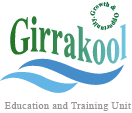10
OctoberThe Number One Question You Must Ask For Best Rehab In The World
Introduction:
Cocaine addiction is a critical community ailment that features widespread ramifications for people, families, and culture overall. The addictive properties of this stimulant medication ensure it is challenging to over come, leading to damaging consequences for people in both the brief and future. This report aims to offer ideas into cocaine addiction, its results, and possible treatment plans.
The Range associated with the Problem:
Cocaine addiction was on the rise globally, affecting thousands of people from all walks of life. The first attraction associated with medication lies in being able to induce emotions of euphoria, increased energy, and heightened confidence. However, duplicated usage frequently contributes to threshold, requiring higher doses to achieve the desired impact. This design of good use can very quickly spiral uncontrollable, causing addiction.
Results of Cocaine Addiction:
The physical and emotional consequences of cocaine addiction can be damaging. Physiologically, prolonged abuse of drug can result in cardiovascular problems, breathing issues, and harm to body organs like the liver and kidneys. Psychological state disorders such as for instance despair, anxiety, and paranoid psychosis are normal those types of suffering cocaine addiction. The financial burden of such addiction can be astronomical, as individuals prioritize obtaining the medication over conference everyday requirements, causing work loss, personal bankruptcy, and strained connections.
Underlying Elements and Danger Facets:
Numerous aspects donate to the development of cocaine addiction. Socioeconomic standing, genetic predisposition, and emotional factors such as for example impulsivity and thrill-seeking behavior all are likely involved in increasing an individual's vulnerability to addiction. In addition, experience of a supportive environment, familial reputation for substance abuse, and childhood trauma can significantly heighten the risk of cocaine addiction.
Treatment Options:
Addressing cocaine addiction requires an extensive method that combines medical, emotional, and personal interventions. Detox is actually step one, enabling individuals to properly withdraw from the medication under medical guidance. Medications might prescribed to control withdrawal signs and reduce cravings. Cognitive-behavioral therapy (CBT) has revealed encouraging outcomes, helping individuals identify causes, develop coping systems, and change maladaptive habits of thinking and behavior.
Supportive communities particularly 12-step programs or group treatment are vital in fostering data recovery and offering ongoing help. Holistic techniques that stress lifestyle changes, anxiety reduction strategies, and alternate therapies like acupuncture therapy or meditation are also becoming investigated to check conventional treatments.
Protection and knowledge:
Prevention is an essential aspect in fighting cocaine addiction. Community health promotions that focus on the dangers of cocaine usage, its addicting nature, and the possible consequences are necessary in curbing its prevalence. Schools and academic institutions should apply evidence-based drug abuse programs that instruct youthful individuals about the risks associated with medicine usage and show refusal abilities.
Summary:
Cocaine addiction stays an important general public wellness anxiety treatment thailand about far-reaching effects. The vicious period of addiction and its particular damaging results on real and psychological state necessitate effective avoidance initiatives, very early input, and extensive treatment options. It is crucial that governments, health care specialists, and communities come together to handle this devastating epidemic and provide the required support for the people experiencing cocaine addiction.

